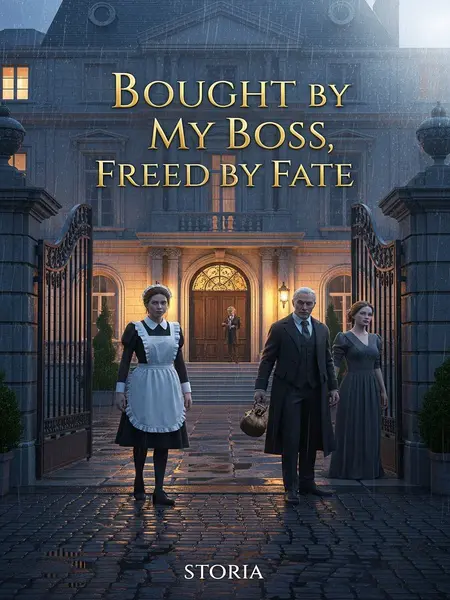Chapter 4: New Beginnings and Old Threats
You lived in a two-story home in Savannah. Your days were spent reading, drinking sweet tea, leaning on the porch to watch the creek and fishing boats, and gazing at the sunset. Spanish moss hung from the oaks like old lace, and every afternoon the air tasted sweet and heavy with rain.
In the open-minded South, some people were curious about you—a beautiful widow of unknown origin, with money to spend—and tried to introduce you to widowers or men too poor to make a living. You smiled politely at every church potluck and neighborhood barbecue, listening to the gossip and declining every offer with practiced grace. You were an enigma, and you liked it that way.
But you politely refused—not because you couldn’t forget the boss, but because the standards for men in this era were too low, while women faced endless restrictions. You’d seen enough to know that most men brought more trouble than they were worth. You’d built your peace and weren’t about to surrender it.
You had income from shops and land, no worries about food or clothing. Only a fool would marry and let some self-important, greasy man boss you around every day. You tracked every penny in a battered spiral notebook, the kind you’d buy at Walmart in August for back-to-school sales. Financial freedom was the sweetest thing you’d ever tasted.
Your four maids worked in shifts, three days on and one day off. They’d never had it so good, and each became plump and rosy-cheeked. You paid them well, fed them better, and let them nap on rainy afternoons. The house was alive with laughter and music—yours, all yours.
But soon, you noticed that one wasn’t just gaining weight—she was pregnant. You spotted the signs early—the cravings, the sudden tears. You waited for her to come to you, patient and kind.
Her affair with the handyman was discovered. She knelt before you in terror, but you only smiled and asked if she wanted to marry or keep things as they were. The maid’s hands shook as she pleaded, her voice barely more than a whisper. You remembered being that young—terrified and hopeful all at once. You crouched down, your tone gentle. "Do you want the wedding, or the job?" you asked, offering her the dignity of choice.
The maid was young, glancing hopefully at the handyman who kept his head down and said nothing. She could only beg you to release her contract so they could marry. You saw the hope in her eyes, the fear in his. You nodded, making it official—freedom, once again, was the best gift you could offer.
You agreed without hesitation. You handed her a small envelope of cash, wished them well, and watched them leave arm in arm. The house felt quieter but lighter for it.
You lived alone; the house hardly needed so many people. With two thousand a month in rent, you could easily afford a five-hundred-dollar maid and a handyman earning minimum wage. You did the math over coffee, content with the new arrangement. Simplicity had its perks.
You glanced at the silent handyman and thought little of it. You had bigger things to worry about than young love and broken contracts.
Another maid tried to persuade her, echoing your own thoughts: here, all you had to do was mend, wash, dust, cook, work three days and rest one, with room, board, and five hundred a month. Outside, you’d have to work for a living, raise children—it hardly seemed worth it. The conversation echoed through the halls, a reminder of how rare a good gig was in this world.
But the kneeling maid was even more determined—love makes people lose their senses. You shrugged, remembering your own foolish hopes. Everyone had to learn their own lessons.
Letting them go wasn’t really an act of kindness; you just wanted to see how her life would turn out. You told yourself it was curiosity, not generosity, that guided your hand.
Aside from this episode, the rest were loyal—such an easy job was rare in this world. You rewarded loyalty with small gifts, holiday bonuses, and the occasional half-day off. The staff became a kind of family, chosen and cherished.
One rainy day, you met a down-and-out grad student and kindly let him stay in your guest house to weather hard times. He showed up at your door, soaked and shivering. You handed him a towel, poured him coffee, and let him tell his story by the fire. The student was handsome and talented. You saw the spark in his eyes, the quick wit in his words. He reminded you of yourself, hungry and clever, determined to make something of his life.
By lamplight at night, you made love with him in the guest house, finding it far more satisfying than with that tiresome boss. You laughed in the darkness, free and alive in a way you’d never been before. The walls were thin, but you didn’t care who heard.
A few months later, the student went to New York for interviews. You maintained your dignity and gave him two hundred dollars for travel expenses. You handed him the envelope with a smile, refusing to beg or cling. Love, here, was a choice, not a sentence.
You thought that if you did this more often, you might live longer. You began to believe in second chances, in the power of letting go.
After that, whenever you saw a pleasing stable hand or sturdy mover, you’d stop to admire. You learned to enjoy life’s small pleasures—flirtation without commitment, beauty without chains.
You fully understood the boss’s longing, five years ago, for beautiful wives, girlfriends, and strip club freedom—because, within limits, you had become another boss yourself. You saw yourself in his shoes, grinning at the memory. Freedom tasted the same, no matter who held the leash.
You were constrained by the era, trapped by your gender, with no family to rely on, and dared not openly indulge your pleasures, just as he had been stifled by his parents and forced to study. You moved with caution, careful not to draw too much attention. But within the walls of your home, you were queen—answerable to no one.
With resources and choices, able to make others please you, you would never devote yourself to just one person. You accepted the trade-off—security for solitude, pleasure for peace. It was a bargain you could live with.
Whether a live-in maid could become a legitimate wife and enjoy lifelong love with her boss—once you gained perspective, it all seemed a farce. You laughed at the old stories, the romance novels that promised happy endings. Real life was messier, but it was yours.
You were just past twenty, healthy, with no bad habits, and earning enough each month to soon buy another shop. You tracked your investments on a spreadsheet, set goals for the future. You felt unstoppable, for once.
You thought your life would go on simply and happily like this, but disaster struck the South. The news broke during breakfast—sirens in the distance, radios blaring. You gathered the staff, braced for whatever came next.













